Written by Marie Hoff & Photographed by Paige Green

To arrive at Fortunate Farm, you have to drive along the California coast, either north or south, passing some of the most epic viewsheds to be seen on Coast Highway 1. The farm is hours away from any major city, and just south of Fort Bragg, a small fishing town and tourist destination where the land meets the Pacific Ocean. Here the water and sky melt into each other, in a gleaming marriage of silver light.
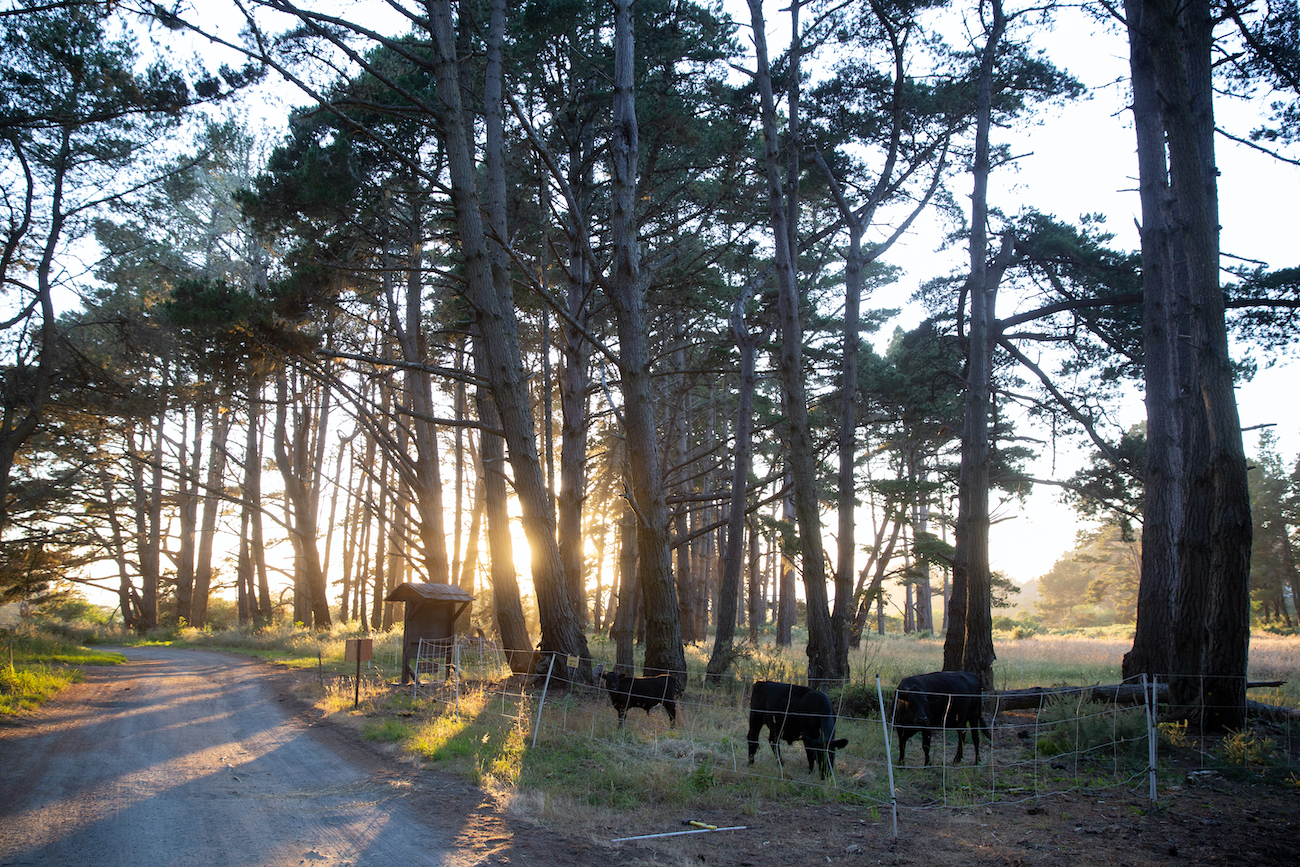
Any road to get to this part of the Mendocino coast involves twisting turns through gorgeous and ancient old-growth redwood forest. Still, according to farmer and co-owner Gowan Batist, “We’re in the middle of everywhere if you think about it.” She explains, “we’re equidistant from Arcata to the north, the Bay Area to the south, and people come here from Davis and Sacramento to the east when they’re trying to escape the heat… we aren’t close, but we are on the way to everywhere people go in Northern California.”
Wherever you go, there you are. At Fortunate Farm, the farm is at the center of its own universe, the center of its own community, the center of the Northern California coastline.
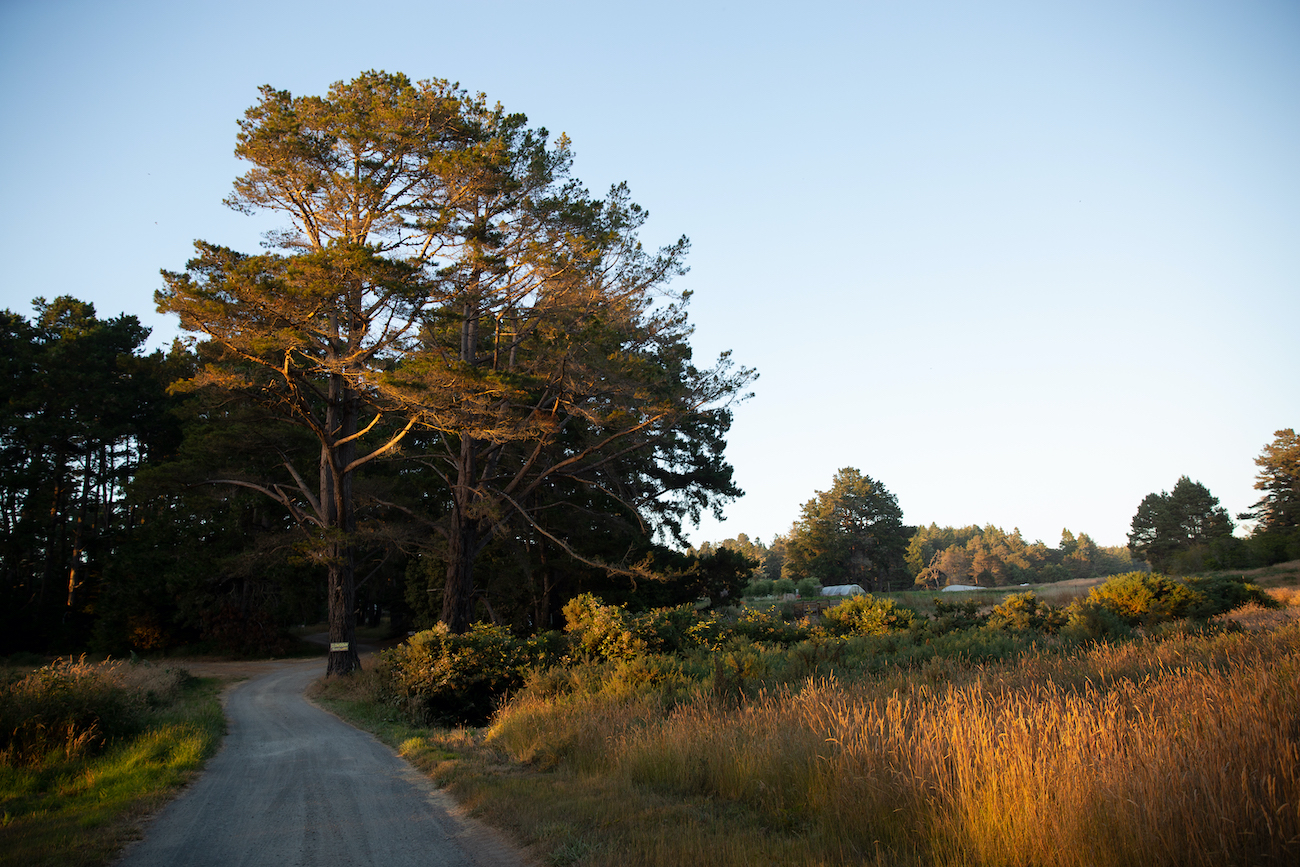
If a farm is a living organism, the farmer is wedded in a deep relationship to it. The land, the domestic and wild animals, the plants and microorganisms, the weather patterns, and water/mineral/elemental cycles make up its living system, and the farmer is there to tend to it. It’s a relationship of care, an emotional relationship, and financial relationship, similar to a marriage, similar to a family.
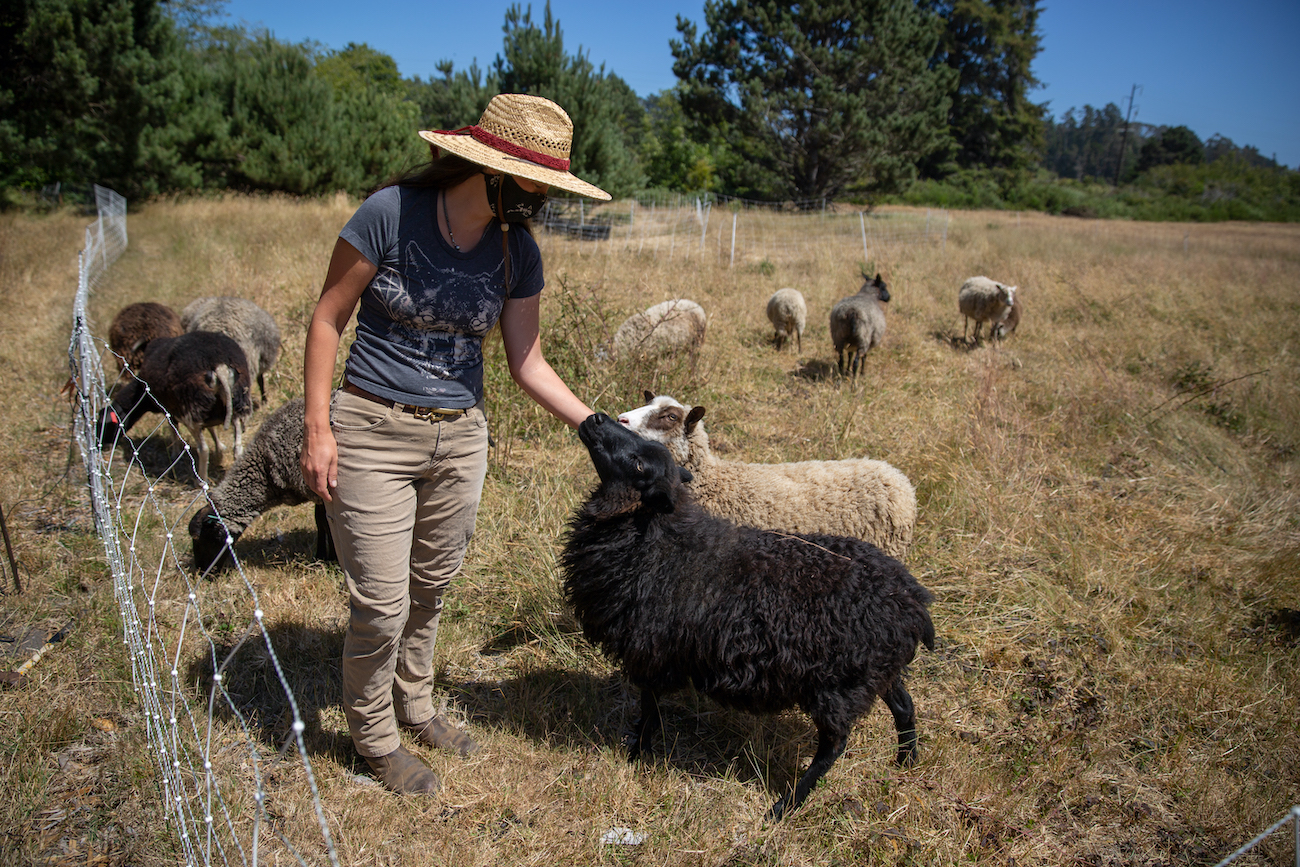
In 2011, Gowan Batist began Fortunate Farm with her family, and in 2012 began a unique collaboration with a local brewer, North Coast Brewing Company. A part owner in the property, NCBC supplies spent brewing grains for compost while including Fortunate Farm produce on their restaurant menu. Compost application is among several other carbon farming practices that make up the farm’s active Carbon Farm Plan, and which contribute to drawing carbon down out of the atmosphere to be sequestered in the soil while producing fibers, flowers, and food. According to Gowan, the spent barley is fabulous for compost as it is pathogen-free and has a good ratio of carbon to nitrogen. The spent grains are mixed with hardwood chips from local tree trimming companies, then formed into windrows to compost, and finally spread onto crop fields, pasture, and invasive gorse patches (cut down and reseeded with grass seeds). Gowan notes that after covering old invasive gorse patches with compost and reseeding, she has seen many native plant species return voluntarily, such as thimbleberry, salmonberry, elderberry, cascara, and wax myrtle.

Today, the farm has grown into an integral role in the local community, both as a grower of local food and as a space for social functions (such as its weekly yoga class), as well as a space for safe harbor during a disaster, such as when they hosted 150+ evacuees during the 2017 wildfire season. The farm serves as an incubator for young farmers, spawning new farm projects from past farmworkers, including two adjoining the property to the east and to the south. The farm’s resident sheep help to manage brush in surrounding areas, providing important vegetation buffers to prevent catastrophic wildfire, and helping to sculpt the local landscape for fire resiliency.
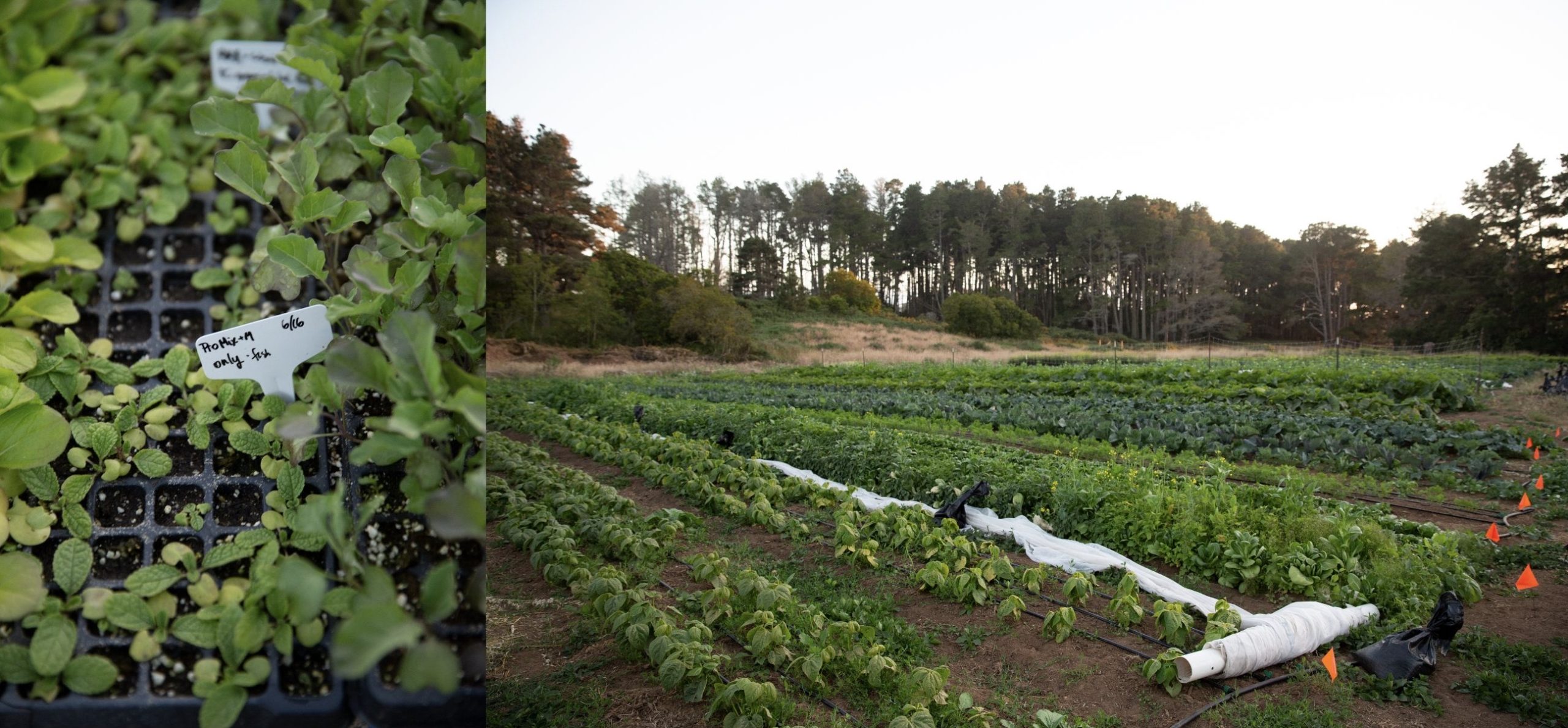
The sheep, though not the main economic function of the farm, remain critical to overall ecosystem functioning, through their work to reduce problematic invasive species (such as gorse), maintain grasslands, and reduce fire-prone brush. They are a cheerful motley collection of Northern European short-tailed breeds, including Gotland, Finn, and Icelandic crosses. They produce a variety of colors and quality of fineness, from dark chocolate browns, to caramel golds, to tawny creams, muted greys, and soft whites. Thus far, the fleeces are sold to friends and family, and Gowan herself is an avid hand spinner. But stay tuned for more fleece availability through Fortunate Farm in the near future, as they develop a fiber brand.

A relationship to one’s place remains a work in progress, a continual process of growth, change, and renewal. Fortunate Farm was founded on a passion for local resilience, for food justice and community accountability. Gowan recognizes that she is descended from people who colonized this place — the farm itself is located on the traditional territory of the Northern Pomo — and thus enacted changes to the land and people that have built up over generations. She feels this history bestows on her a drive to try to heal the land, and bring back biodiversity. She states, “We are responsible for our inheritance, and this is part of mine.”
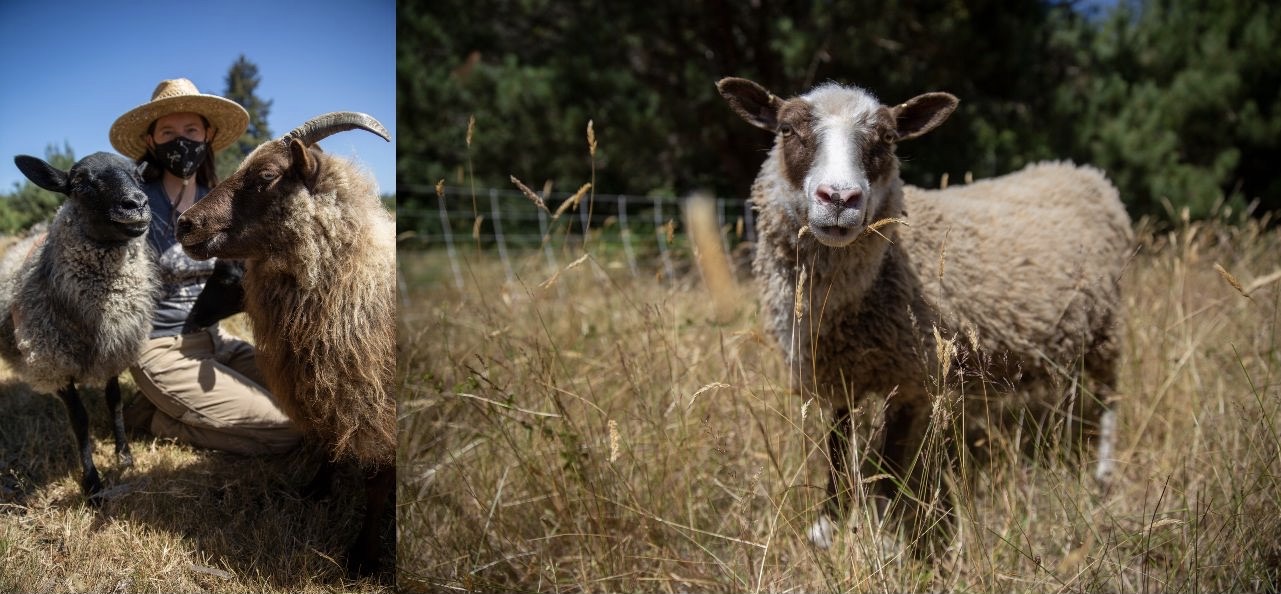
The sheep munch and munch down the gorse, many times if needed. Gowan covers the gorse with the compost of local enterprises, reseeds it with grasses, and observes the return of native species. Thimbleberry, salmonberry, elderberry. Cascara and wax myrtle. The relationship deepens. A renewal awaits.
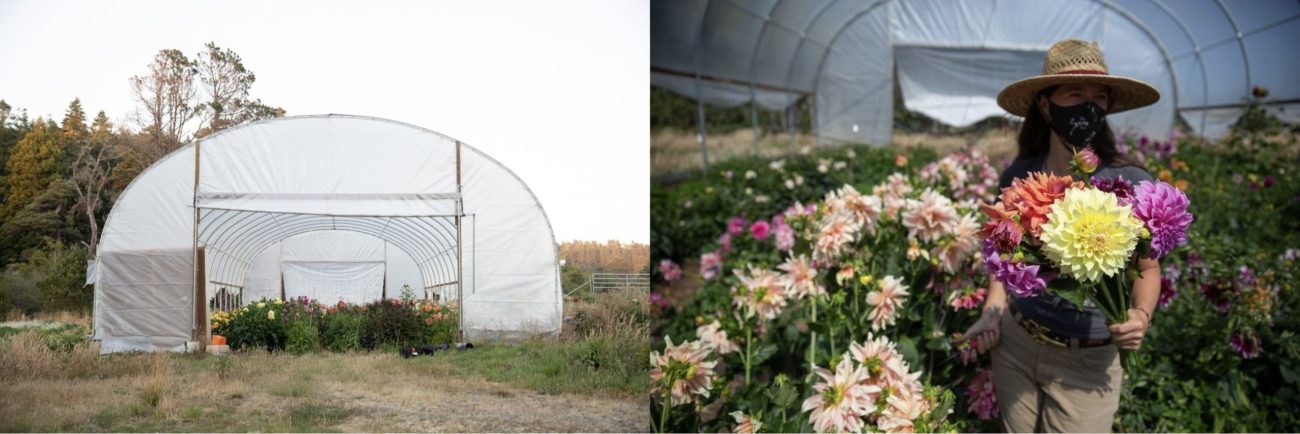
To learn more about Fortunate Farm, you can follow them on Instagram, Facebook, or visit their website.
